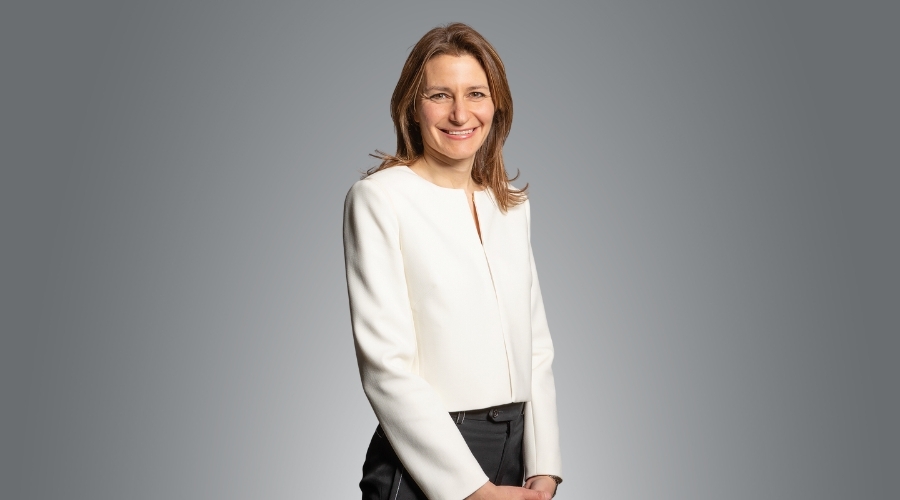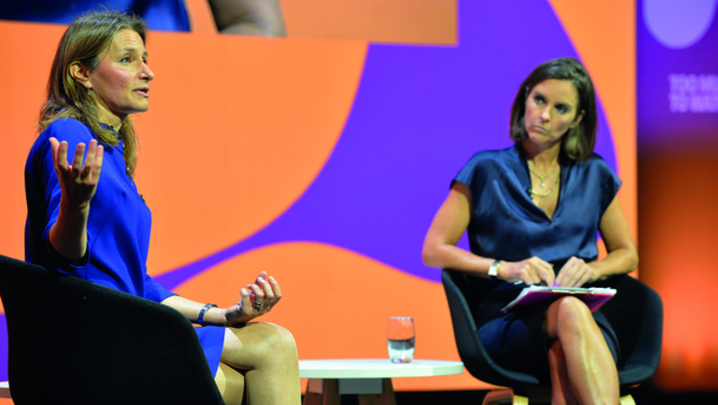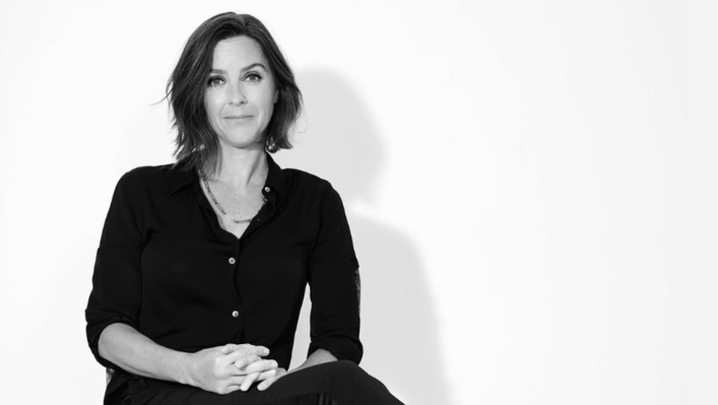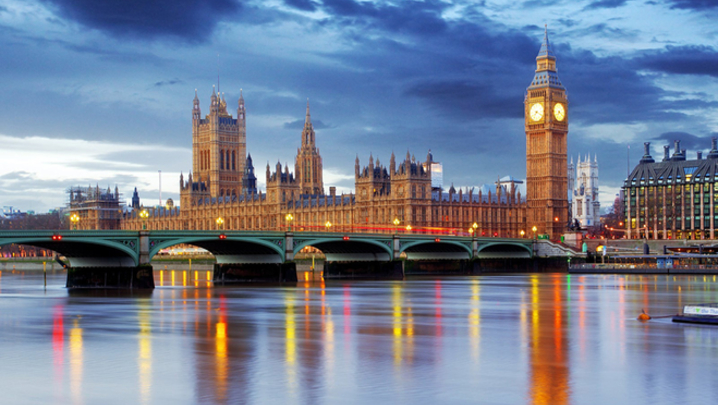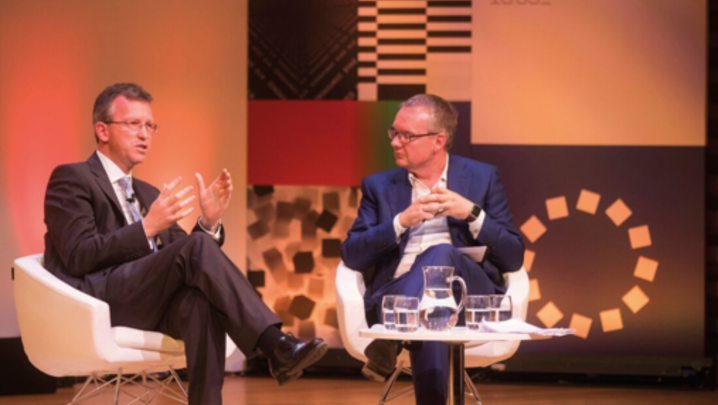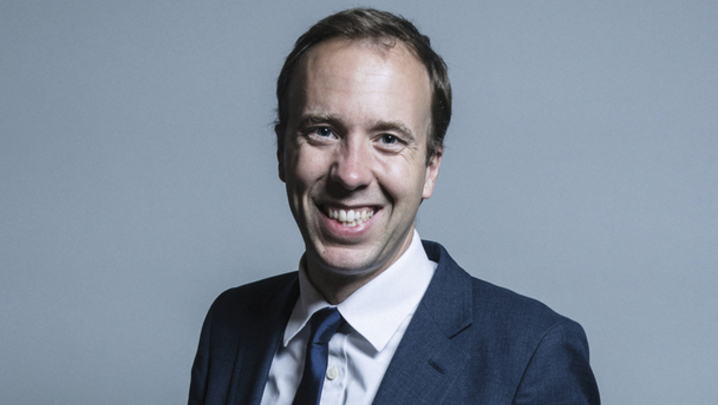Lucy Frazer, appointed Secretary of State at the DCMS in February, has a reputation as someone who likes to get things done. Steve Clarke reports
John McVay, the Chief Executive of Pact, speaks for many in the TV sector when he urges Lucy Frazer, Secretary of State for Culture, Media and Sport since February, to remain in her post for the foreseeable future. “My main plea is, ‘Can you stick around a bit, please,” he said.
Frazer is, of course, the 12th politician to occupy the role of culture secretary in 13 years – and her tenure comes at a pivotal time for the sector. The much-anticipated Media Bill, held back by the controversy over privatising Channel 4, is now not expected to receive its first legislative reading until December at the earliest.
The days when culture secretaries stayed in their jobs for several years, instead of months, are a distant memory. Chris Smith, Tony Blair’s first minister in the department, was there for four years. His successor, the late Tessa Jowell, was in post for six – yes, that’s right, six years – earning respect and widespread affection from stakeholders after a, frankly, shaky start. Both politicians were cheerleaders for the arts.
Since David Cameron’s first election victory, in 2010, only one Conservative culture minister, the first – Jeremy Hunt – could genuinely be said to have got his feet under the table, given the breadth of the brief. The shortest-serving was the last one, Michelle Donelan, who did the job for a mere five months.
“Lucy Frazer is holding one of the top cards in the British economy, which is worth over £117bn,” said McVay. “There’s a big opportunity to grow and create still more jobs. We need some continuity.”
This is especially true since those who have sat down with Frazer in Whitehall are impressed by the new Secretary of State, whose appointment gave her a new “streamlined and refocused” DCMS as the responsibility for technology was moved across in February to the newly minted Department for Science, Innovation and Technology, headed by Donelan.
“This means the DCMS can focus on the culture bit of the brief, which I think is a good thing,” noted McVay, who likes what he’s seen of Frazer. “She is sitting down, listening, engaging, being serious and getting on with the job.”
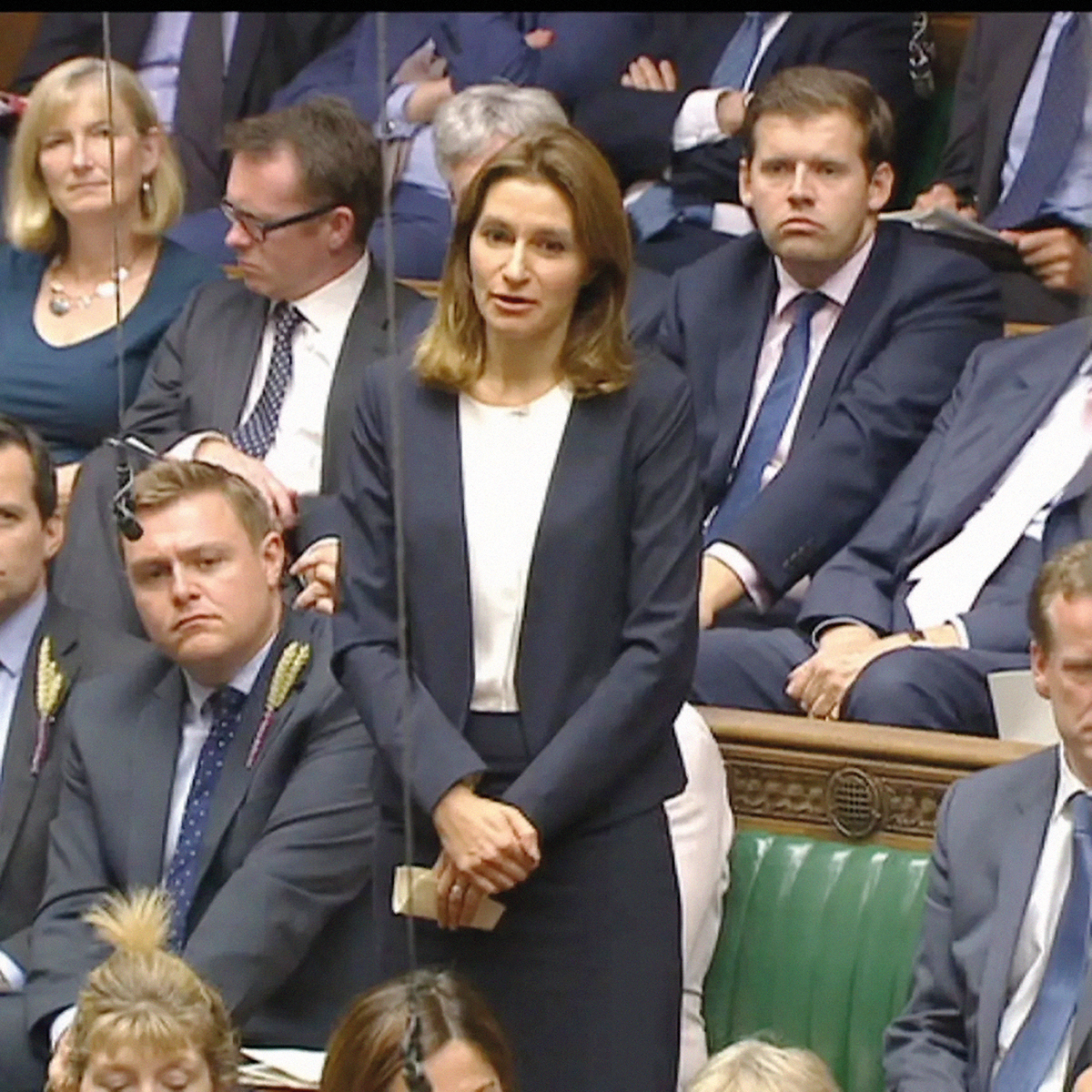
(credit: BBC Parliament)
This view is echoed by a senior broadcaster who is well connected in Whitehall: “Lucy Frazer is very thoughtful and does a lot of listening. She wants to make things happen and bring people together. She likes solutions. She is effective and calm. During the recent BBC Huw Edwards crisis, she was very careful.”
The broadcaster added: “In July, she organised a roundtable with Gillian Keegan, the education secretary, to discuss how apprenticeships can be made more effective in the creative industries.”
Another high-ranking TV executive who has met Frazer on several occasions said it is evident that the Secretary of State is interested in the opportunities that the creative industries can deliver for young people.
The executive opined: “She is sharp and focused and quite determined in a good way. She pays attention to detail. She’s forensic and thinking about what she can do to make a difference. Everything seems to point to her wanting to get things done in the department.”
The daughter of Jewish immigrants, she was born in West Yorkshire in 1972 and was educated privately at Gateways School for Girls and Leeds Girls’ High School. She attended the all-female Newnham College in Cambridge, where she was elected President of the Cambridge Union during the Michaelmas term. At university, she met her husband, David Leigh, who runs a recruitment company. The couple have two children.
Before becoming an MP, she worked as a barrister in commercial law in London and was appointed a Queen’s Counsel a decade ago. She decided to go into politics because she wanted to make a difference, “I am simply someone who has been lucky in her professional career who feels it is important to contribute to society,” she once said.
In 2015, she entered parliament after being elected MP for the safe Tory seat of South East Cambridgeshire; she won 48.5% of the vote with a majority of 16,837. The same year she was elected to the Education Select Committee.
Intriguingly, she backed remaining in the EU prior to the 2016 referendum.
Her government roles have included Parliamentary Under-Secretary of State for Justice between January 2018 and May 2019 and Solicitor General from May to July 2019 (and reappointed to the post from March to September 2021).
She subsequently worked as a minister in the Ministry of Justice, with a focus on prisons, before joining the Treasury, where she was Financial Secretary to the Treasury. More recently, she was Minister of State in the Department for Levelling Up, Housing and Communities, and spent seven weeks as the Minister of State at the Department for Transport during the chaos of Liz Truss’s brief premiership.
"She wants to make things happen and bring people together"
Frazer supported a private members’ bill to make so-called “upskirting” (the taking of sexually intrusive photographs) an offence. It failed to pass its second reading but was subsequently championed by the Government and became law in April 2019. At the time, she said: “Upskirting is a humiliating activity, and this law will ensure that the gap in the law which existed will now be filled.” Offenders face up to two years in prison.
Frazer backed Rishi Sunak’s leadership bid in fulsome terms following the implosion of the Johnson government in July 2022. “I have worked with him as a minister since September, and I have seen first-hand his dedication to the role,” she said. “I have seen his relentless work ethic, his mastery of the detail, complete grasp of his brief and his ability to set strategic direction and see the big picture.”
That she can seek the advice of ex-culture secretary John Whittingdale, who is covering as a DCMS minister while Julia Lopez is on maternity leave, should help her work as Secretary of State, not least as the recently announced BBC licence fee review gets down to work. “Not everyone agrees with his views – I know I don’t – but John is someone who knows the creative industries inside out,” says McVay.
Unlike her predecessor, Michelle Donelan, who had worked as an international marketing communications manager at advertising company WWE, as well as for History channel and for Australian publisher Pacific Magazines, Frazer came to DCMS without any direct experience of being employed in the media.
This lack of media experience is not a disadvantage, according to McVay: “To understand the business, you need an inquiring mind and be able to challenge your officials and the lobbyists. Intellectually, Lucy seems very capable of that.
“From my dealings with her, she is very direct and asks good questions. We need some grown-up politicians, and she is clearly one of them.”

